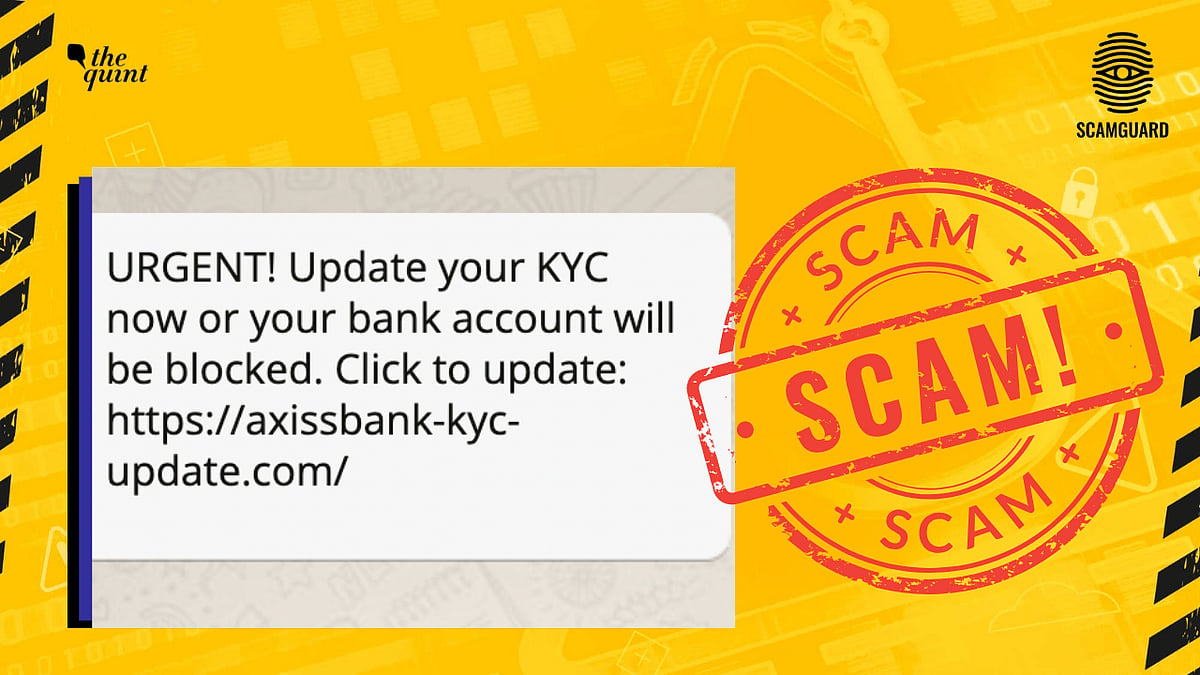KYC Phishing Alert: How Fake Bank Websites Steal Your Data & Money
A look at KYC update scams using fake web pages

advertisement
“Update your KYC now, or your bank account will be frozen!” - one statement that can make you act on a whim and enable scammers to siphon your money.
A well-known scamming technique is to create urgency to manipulate you into providing your personal details. Coupled with the scammers’ persuasive approach, it is easy to fall into their trap.
Before you are hit with ‘KYC fraud’, arm yourself with the information that can help you safeguard yourself and those around you.
Modus Operandi
‘Update KYC ASAP’: Scammers impersonating bank officials or financial institutions contact you via phone call, text, or email to inform you that you need to update your KYC (Know Your Customer) for your bank. They will warn you that any delay will likely freeze or block your account.
Fake Bank Site: Scammers offer a quick way to update your KYC online by sharing a link to a KYC update website page that resembles a credible bank.
Account Details: When you enter your ‘User ID/Customer ID/Login ID’ and ‘Password’ on the fake website page, the scammer captures your information in real time using methods such as keyloggers, which can record every keystroke you make on your device.
Money Transfers: With access to your login credentials, scammers can quickly transfer money from your account or make fraudulent transactions.
Red Flags
No bank will threaten to block or freeze your account if your KYC is not updated immediately.
The website link or URL the scammer shares does not match the official bank domain. For instance, https://axisbank-kyc-update.com/ is a fake domain, while the actual page is https://www.axisbank.com/re-kyc.
What To Do
Verify: Look for your bank's helpline number on their official website and call directly to ask if your KYC update is due. If yes, confirm what methods are available to update your KYC.
Pause: Never click or tap on links unknown individuals share via email, SMS, or messaging apps such as WhatsApp.
Identify: Be cautious of any messages pushing you to act immediately. Creating urgency is a common tactic deployed by scammers impersonating bank officials to dupe their victims.
Report: If you’ve been scammed, immediately contact your bank to block unauthorised transactions and help secure your account. Report the incident through a government portal such as Chakshu (https://sancharsaathi.gov.in/sfc/) and the national cybercrime helpline number—1930. You can also lodge a complaint at the local police station.
(The Quint's Scamguard initiative aims to keep up with emerging digital scams to help you stay informed and vigilant. If you've been scammed or successfully thwarted one, then tell us your story. Contact us via WhatsApp at +919999008335 or email us at myreport@thequint.com. You can also fill out the Google form and help us take your story forward.)